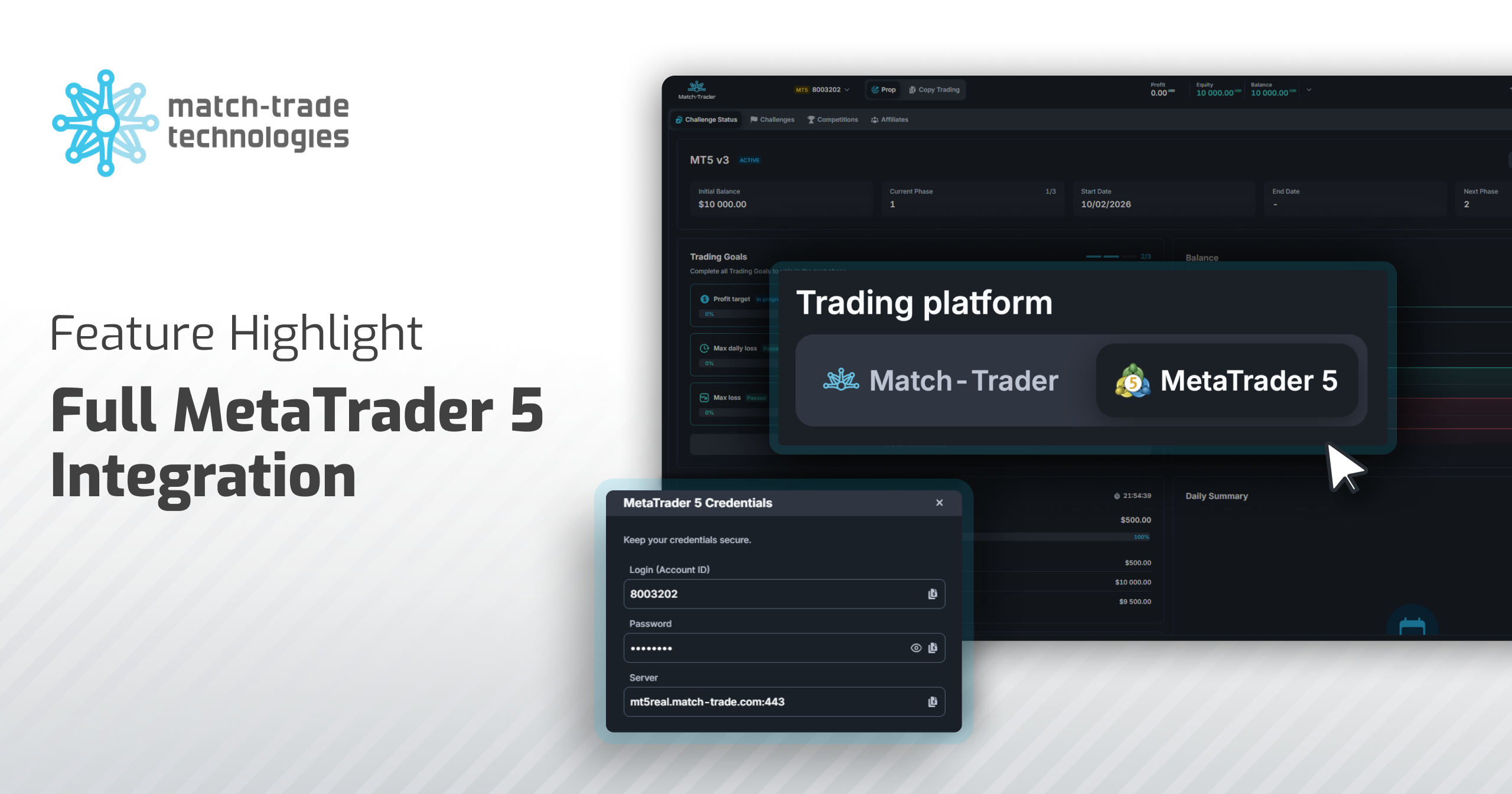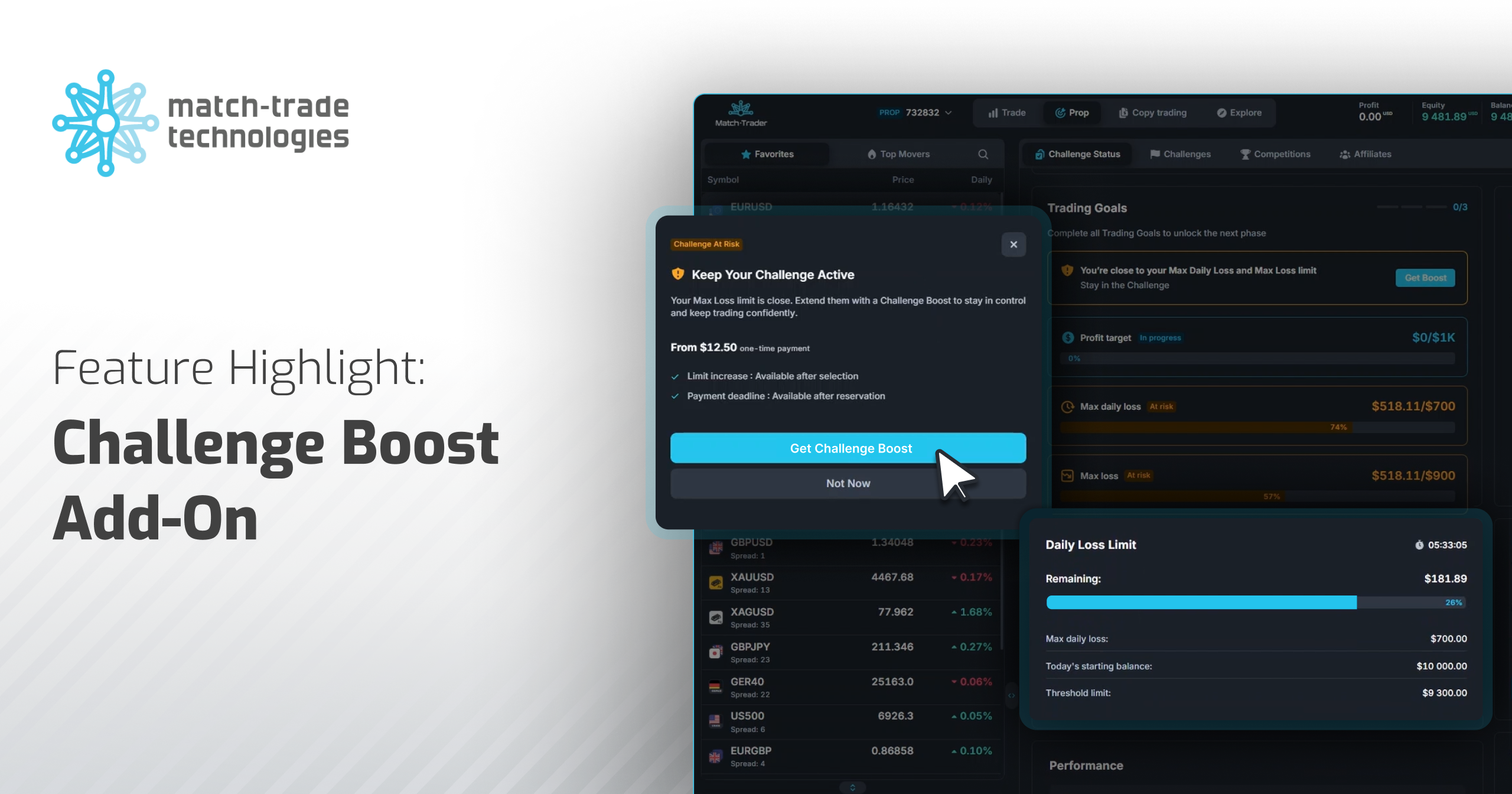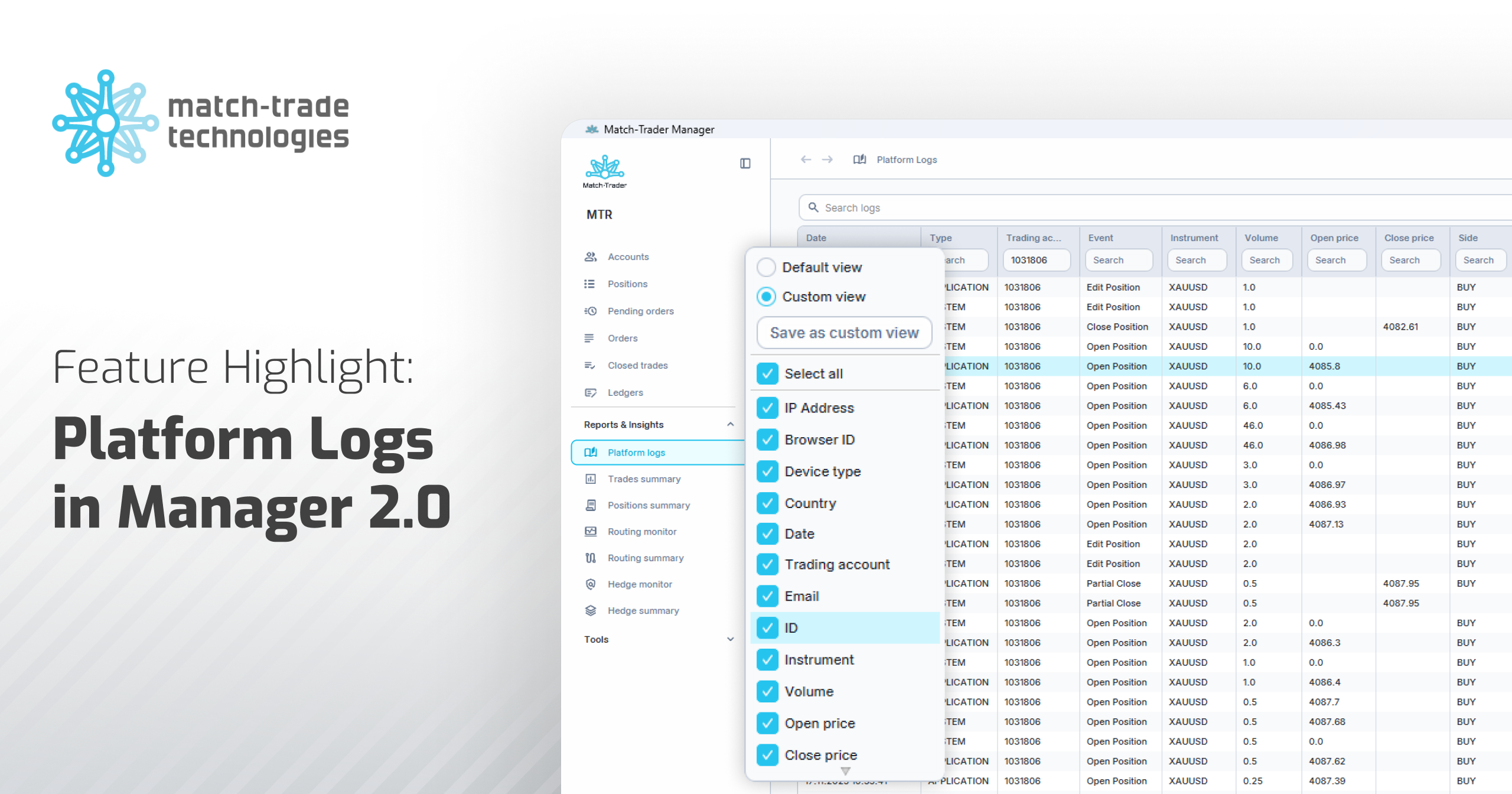Responsible risk management is a crucial step toward success in the Financial Services industry. The current fluid situation in the market requires Investment Firms to analyze their activities thoroughly and often re-evaluate them. The choice between an A-Book and a B-Book could significantly affect the financial condition of the company; therefore, it should be taken well into consideration.
At Match-Trade Technologies, we are proud of our customer service quality- I am in constant contact with many of our clients, conducting dozens of conversations with brokers every day. I have noticed that the topic of increasing business risk has come up numerous times during the last few months. I think it’s safe to say that the reason for this is the current trends in the market in general. In these conditions, traders find it easier to use multiple strategies based on indicators and EAs. Such statistical calculations can be very effective, providing them with high-leveled profits, which of course, reflects on the financial condition of brokers.
Many Brokers have recently published quarterly results indicating that B-Book profitability keeps declining, and those who take their risk internally are getting worse results. In other words, relying solely on the B-Book model may harm your business and limit your profits.
Unfortunately, not everyone is aware of alternative solutions. While the strategies of well-established Brokers are based on stress tests and scenario analysis prepared by multi-person risk management departments, in many start-ups, risk management is not given the place it deserves.
As a forex & digital assets technology provider, Match-Trade Technologies cooperates closely with companies at various development stages, including the initial steps of the businesses. Numerous cases seem to confirm that the analysis of available risk management methods, which are adapted, among many other factors, to the company’s size and type of clientele, gives impressive results. It is worth checking alternatives before deciding to operate only in one model.
Hedging customer transactions will not bring quick, large profits, but it will allow you to manage your budget more confidently. This will enable better, more accurate planning of activities and related expenses. In my opinion, this is invaluable, especially to dynamically developing companies, as it will allow the smooth implementation of plans. Calmly increasing the scale of a business can potentially transfer profits many times greater than risky B-Book activities. Giving up pure B-Book makes the business more stable.
Many brokers need to comprehend the risk of using only the B-Book model. They have their doubts that the diversification of Customer flow will affect profitability, reduce gains, and bring nill results in return. Meanwhile, many well-established brokers use hybrid models for risk diversification. Relying 100% on your resources might be more profitable in the short term, but it carries vast risks:
Macroeconomic Factors impossible to predict
The pandemic, military conflicts, and even recent bank failures and collapses in the US and Switzerland prove that it is impossible to predict all the macroeconomic factors, and they can turn the charts upside down in the blink of an eye. In those cases, one stroke of luck of a trader is enough to affect the financial stability of the whole company. The recent developments of reputable firms are perfect examples of how misguided risk decisions could have enormous consequences. Companies whose position at first glance seemed unthreatened suffered huge losses and had to declare insolvency, for example, due to the scrapped currency peg of CHF against EUR. It is now clear that the problem is not limited to small and medium-sized brokers. Today, in the era of digital assets’ highest popularity, depegging of just one stablecoin may be a triggering event and cause a whole series of events, each of which could be potentially catastrophic. For this reason, brokers are increasingly diversifying business risk, for example, by using liquidity providers– Execution Venues to partially hedge against such hazards.
The Conflict of Interest
CFD brokers have the potential to face conflicts of interest when they are both a market maker and a counterparty to their clients’ trades. It creates a situation where the broker may have a financial incentive to manipulate the market or execution of trades in their favor, which can be detrimental to their clients. Clients do not like such unclear circumstances, which may become a reason to change the broker.
Risk diversification allows brokers to plan their long-term actions, boosts security, and eliminates the need to inject more capital. Creating a dealing team will allow your business to estimate potential profits and losses with greater accuracy. Dealing teams should consist of experienced professionals with the ability to manage risk with ease. Usually, only large companies that have an established position in the market can afford such solutions. However, a group of skilled specialists from Match-Trade Technologies is at the disposal of our business partners who would like to learn more about the possibilities offered by risk management methods and strategies. Using our experience, we can help create an environment in which the broker will be able to freely operate and run a business successfully, saving time and money.
Our team is familiar with the problems and challenges of working in brokerage companies; they understand the risk that brokers face on a daily basis. Based on a number of variables, such as size and customer base, we create tailor-made solutions for any brokerage. If you are interested in continuous development, please contact us to discuss the details. Start using the full potential of your business!





